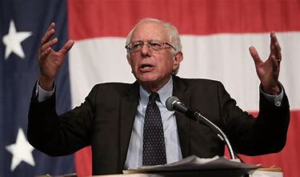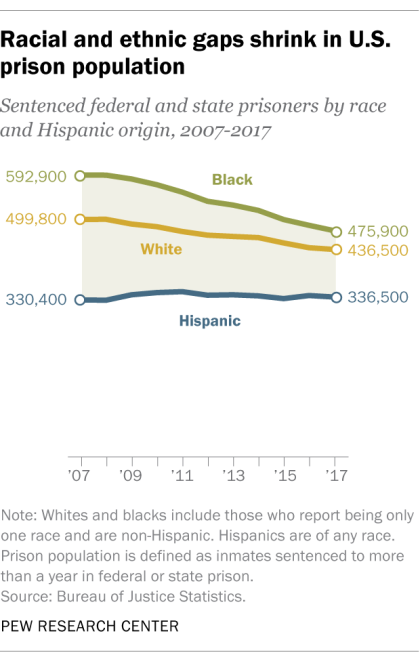One of the main criticisms of Afro-Americans voters’ support of progressive Democratic candidate Bernie Sanders is that he has criticized the Democrat Party. As a result, political analysts say this has reduced Afro-American voter enthusiasm for Sanders.
While it is critical that Afro-Americans and other racial and ethnic groups vote for Democrats, the only party interested in advancing their economic and social interests, history shows that during the Clinton presidency (1993 to 2001), policies were enacted that directly hurt millions of Afro-Americans and other racial and working-class voters.
As a result, Sanders’ criticism of the Democrat Party makes valid points. This is why Afro-American voters  should re-visit history and examine their skepticism of Sanders to see why Sanders opposed some policies that were accepted by many incumbent Democrats at the time.
should re-visit history and examine their skepticism of Sanders to see why Sanders opposed some policies that were accepted by many incumbent Democrats at the time.
Worse, many of Clinton’s policies in the areas of welfare reform and stricter prison sentencing guidelines were later accepted by the two-term administrations of Republican George W. Bush and Barack Obama. As a result, many policies promoted by both Democrats and Republicans worked against the interests of Afro-Americans and other working-class people. This is the basis for Sanders’ criticisms of the Democrat party.
When he was first elected, Bill Clinton was, and remains, very popular among Democrat voters. “Having grown up among black people in Arkansas, he seemed particularly comfortable around African Americans, leading the famed novelist Toni Morrison to dub him ‘the first black president,” according to Danny Sjursen writing in an article, “Bill Clinton: The ‘New Democrat,’” on the site, Truthdig.
“In time, she, and many of her fellow African Americans, undoubtedly came to regret those words as Clinton’s rather conservative, ‘New Democrat’ policies proved to be disastrous for most blacks in the United States,” he wrote.
But Clinton was definitely not a liberal or progressive Democrat. “He was a corporate Democrat, one who deftly convinced all parties in the waning Democratic coalition that he was “on their side,” while often selling them out soon afterward. This went for blacks, Hispanics, gays, union workers and the very poor. Clinton even spoke differently depending on his audience, managing, despite his inconsistent policies, to win the adoration of many of those he would abandon once in the White House,” Sjursen wrote.
In short, Bill Clinton was the first neoliberal president and advanced policies that benefitted Wall Street, big-money donors, and global trade agreements that benefitted corporations more than working families. In many cases, his policies survived during the Obama administration and look more like Trump’s today.
It is this deviation from the traditional Democratic Party platform of advancing pro-labor, pro-social safety net, pro-social justice policies that provide some of the basis for many of Sanders’ criticisms of the post-FDR Democratic Party.
Here is Bill Clinton’s record:
Clinton’s 1996 Welfare Reform
During the Clinton administration, the percentage of families receiving federal cash subsidies fell from 70% in 1996 to 23% in 2015. Clinton’s anti-welfare legislation continued an old trope pushed by many politicians about the “welfare queens” who took federal money without doing any work. This old prejudice existed before Bill Clinton and still persists today.
Bill Clinton’s welfare reform proposal was named the “Personal Responsibility and Work Opportunity Reconciliation Act of 1996.” The legislation cut Aid to Families with Dependent Children and capped lifetime limits on the amount of money recipients could receive to five years for any family. States would even impose shorter time limits. It also gave states the ability to re-direct block grants to use other uses and not make cash payments to families.
Today, one-third of states have imposed limits on these payments of less than five years (Kansas is two years, and Arizona is one year), and there have also been no cost-of-living adjustments since 1997, so payments have effectively been cut by about one-third.
Clinton’s welfare reform also extended to immigrants without full documentation. In these cases, Clinton’s policies cut off food stamps, federal disability protection for five years. After that, their situation was then left up to state governments. At the time, New York Senator Daniel P. Moynihan (D-NY), a former Harvard sociology professor, called Clinton’s legislation “an act of unprecedented social vindictiveness.” Moynihan had also been a critic of Aid to Families With Dependent Children, but his proposal was to attack to cause of the problem: joblessness.
Clinton’s Health Security Act of 1993
Health care reform has been attempted for decades, but its scope and operational details have eluded both parties. This Health Security Act was defeated by a Democratic-controlled Congress because it gave too much power to pharmaceutical corporations, insurance companies and hospital chains over prices.
Clinton’s Expansion of the Prison Population
During Clinton’s two terms as president, the U.S. prison population increased 60% from 1993 to 2001. The administration also deported more people in one year than any other administration in history (1.8 million people). The Clinton administration also made it easier to execute people when it expanded the number of federal offenses that could be subject to capital punishment, according to Jack Barnes in the book, The Clinton’s Anti-Working-Class Record, (PathfinderPress.)
Today, the U.S. has about 5% of the world’s population and holds about 25% of the world’s prison population, many of them being held in private, for-profit prisons. Of the U.S. prison population in 2017, federal and state prisons in the United States held about 475,900 inmates who were black and 436,500 who were white – a difference of 39,400, according to the Pew Research Center.
Clinton’s Anti-Gay Policies
Bill Clinton is known for his “don’t ask, don’t tell” rule that was an intentionally vague policy to allow gay men and women to remain in the military. But still, some 10,000 gays left the military. This was compounded by Clinton’s “final abandonment of gays, Clinton signed the Defense of Marriage Act, a federal law that allowed states not to recognize out-of-state same-sex marriages and defined (from a federal perspective) the institution as a union between ‘one man and one woman,’” Sjursen wrote.
Sanders Was Correct: Clinton’s Policies Helped Republicans
Bill Clinton may have campaigned as a liberal Democrat, but as a politician, he knew where the money and the power resided and it was not with working-class and Afro-Americans. Clinton was a centrist Democrat, certainly never in line with FDR and the old liberal or progressive agenda.
In the early 1990s, the Democratic Party needed a new source of funding. Unions were in decline and corporate power was beginning its ascent that is only gaining power today. Clinton saw this and adopted more centrist and later, pro-Republican policies.
As Sjursen writes: “Clinton showed his true colors, which were centrist and even right-leaning. Indeed, it would be apparent, in hindsight, that the 42nd president was the first outright neoliberal chief executive, tacking right time and again and paving the way for the rise of neoconservative Republican power.”
Today, we are in a neoliberal political world. Corporations control all branches of government and still have a powerful hold over the Democratic National Committee, which is on an incessant hunt for large corporate or wealthy family donors. This is one reason why the DNC worked to derail the Sanders campaign in 2016 and why it still harbors that prejudice against progressive candidates today.
It is critical to vote straight Democrat in all national and local elections in 2020, but when Sanders criticizes the Democrat party for adopting positions that work against working-class people, he is on solid ground.











